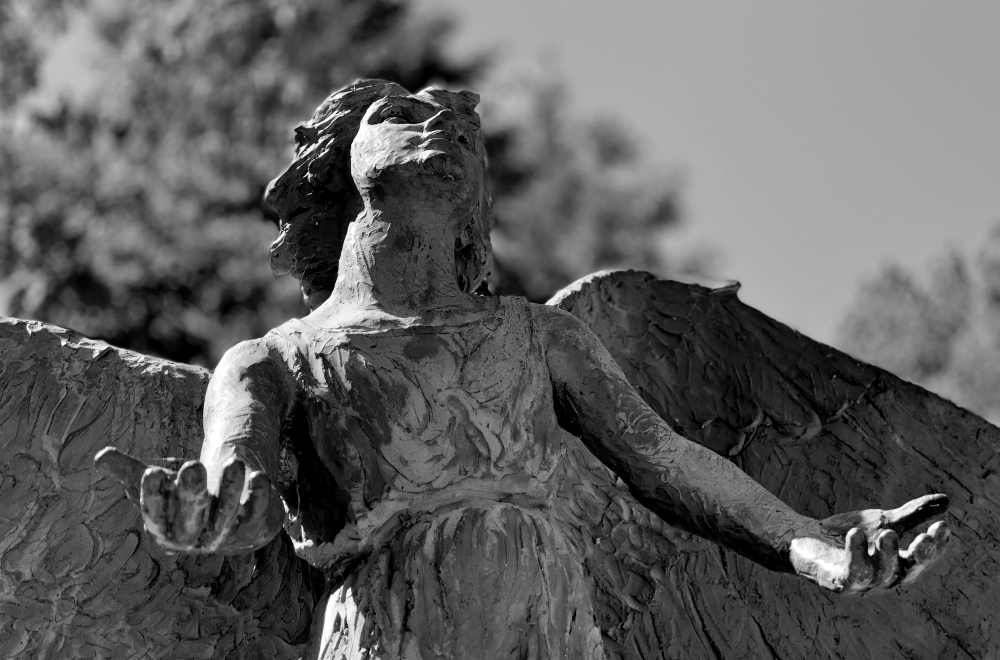
(Unsplash/Jason Marquis)
One day, I was discussing the Christmas story with a 10-year-old friend. She asked, "Would it have been a sin if Joseph had not believed in his dream?"
Her reasoning went like this: "I broke my dad's favorite cup. Then I dreamt that my brother did it. If I say I didn't do it, that's a lie."
So far so good. Then she said, "What if Joseph said, 'That was just a dream?' How did he know his dream came from God? He might have just wished it. I'm confused!"
The day Joseph learned of Mary's pregnancy had to be the worst day of his life. Was he furious? Betrayed? Depressed? Desperate? Shamed? Devastated?
Matthew tells us that Joseph was a just man, a person of the impeccable faith and integrity that leads to profound love of God and neighbor. So, rather than unleash all his justifiable emotions, he tried to discern God's will. Joseph looked to the tried and true of his tradition. He consulted the Scriptures. He spoke with the God who had accompanied his people through thick and thin, through blessing and sin. Maybe he remembered Hosea, the prophet who married a harlot and lured her into the desert to woo her back. Joseph felt no call to that plan.
What was he to do? We can almost hear him praying Psalm 16: "Keep me safe, O God, in you I take refuge. … I bless the Lord who counsels me, even at night my heart exhorts me. … You will show me the path to life."
He thinks, "Divorce her quietly. That neither condones her sin nor condemns her. It's the law's most merciful solution."
He prays again, "I bless the Lord who counsels me. Even at night …" Then the angel came in the night.
The angel calls him son of David. Something new begins to dawn on him: He's not called to rely on Moses nor to be a prophet, but a son of David. God had promised David, "I will raise up your offspring after you. … I will establish his throne forever." Whereas the people were the subject in Moses' commands, "Thou shalt"; God was the protagonist in the promise to David.
Advertisement
The angel gave Joseph a single command: "Do not be afraid." Then, as if to explain everything else, the angel said: "That which is conceived in her is of the Holy Spirit … Emmanuel, which means God is with us." Surely, Joseph was confused.
Joseph's dilemma was whether to rely on Moses and the commandments or the word of an angel in a dream. It was a risky decision. If he condoned, smoothed over, or hid adultery, he became as guilty as the perpetrator. The safe path would have been the merciful application of the law.
But the angel ordered: "Do not be afraid." Was that a command from God?
The answer to my young friend's question might be, "I don't know about sin, but whatever Joseph chose, he risked making a big mistake."
On one hand, following the law might have seemed like the best route. Why should he think he knew more than his ancestors? On the other hand, what about the Holy Spirit? Can we confine God's Spirit to our rules and expectations?
Joseph apparently decided that as long as either choice could have been wrong, he might as well follow the angel's orders.
In fairy tales, we would finish this with "happily ever after." But that's not the plot of the Gospel. Joseph's decision was only the beginning of his difficulties. (That's why Orthodox icons of the Nativity often show him away from the center, worried and tempted by the devil.)
Joseph challenges us to live lives of profound discernment. He was one of the first to experience the paschal mystery, in which what seemed to be the worst day of his life was actually a day of unimaginable grace.
As Joseph faced his decision, the stakes were immensely high. Matthew's story tells us how God gambled on Joseph. Luke's Nativity reveals how God gambled on Mary. In reality, God gambles on all of us. In return, our faith is a gamble that God's love will lead us in times of confusion and doubt.
If Joseph were to visit us today, he might counsel us to worry less and pray more. He might even give us a pre-Christmas gift of Thomas Merton's prayer for doubters. The key phrases of that prayer are "My Lord God, I have no idea where I am going. … But I believe that the desire to please you does in fact please you. … I hope that I will never do anything apart from that desire. … I will not fear, for you are ever with me."
Even in confusion, that's an act of faith in Emmanuel.
[Mary M. McGlone is a Sister of St. Joseph currently writing the history of the Sisters of St. Joseph in the U.S.]
